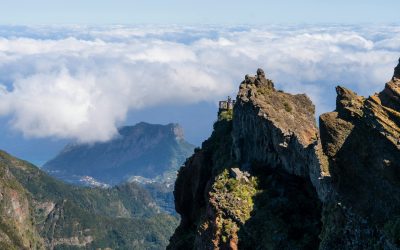After years of working abroad, returning to Portugal has tax advantages and the way to obtain them is through the Non-Habitual Residents (RNH) regime approved by Decree-Law No. 249/2009. The RNHs regime, which aims to attract to Portugal not only highly qualified professionals, but also beneficiaries of foreign pensions, including former emigrants.
Although this regime is particularly important for emigrants who wish to return to Portugal, it seems to remain largely unknown among our emigrant community. In 2016, there were about 10,684 RNHs in Portugal, although the overwhelming majority were foreign.
Under the RNH regime, emigrants (or any other person) who qualify as beneficiaries enjoy, for a consecutive period of 10 years, exemption from IRS on their passive income (rent, capital income, and income derived from capital gains) provided they are obtained abroad.
This regime allows the aforementioned income to be exempt (pensions are taxed at a fixed rate of 10%) from taxation in Portugal, provided that they can be taxed in the country of source in accordance with the international agreement to eliminate double taxation in force, and are not considered to have been obtained in Portugal in accordance with domestic legislation.
In cases where there is no international agreement to eliminate double taxation, the income must be effectively taxed in the other country, territory or region, provided that the income is not considered to have been obtained in Portuguese territory.
However, it is important to note that the exemption provided for in the Act does not cover passive income obtained in territories considered as tax havens by the Ministry of Finance, such as Andorra, Bahamas, British Virgin Islands (BVI), Liechtenstein, among others.
Bearing in mind the conditions described above, an emigrant, as long as he meets all the requirements that are legally required of him, can count on 10 years without paying IRS on pensions obtained in the country to which he has emigrated in the past. The same applies to investments made, either in the country to which you emigrated, or in another country where you have made investments.
The RNH regime is also favorable to emigrants who wish to continue to develop their professional activity upon their return to Portugal. The regime also guarantees, for a period of 10 years, an IRS tax of 20% on high value-added activities, of a scientific, artistic or technical nature, regardless of the amount of salary earned.
Of these high added value activities, administrators, managers, consultants, auditors, artists, designers and doctors stand out. The list provided for in the Law mainly covers activities that require a high degree of training and specialization, which may also be relevant for expatriates who work in the Madeiran hotel sector and perform management or intermediate positions.
Under the RNH regime, any national or foreign citizen residing, for tax purposes, in Portuguese territory, can benefit from the regime provided that they have not been considered resident in Portuguese territory in any of the five years prior to the year in which they wish to begin. taxation as a non-habitual resident.
Although an emigrant who returns to Portugal can quickly obtain registration with the Tax Authority as an RNH, it is highly recommended that he seek tax advice given his sometimes complex or extensive patrimonial structure.
Without a careful analysis of their assets and adequate technical advice, the emigrant risks not benefiting from the regime and, consequently, being taxed under the general tax regime for individuals residing in the country, with rates that can reach 48%.
There are tax advantages that our emigrants are unaware of when they return, which can be a well-deserved reward for the long years they worked abroad to have a worry-free retirement in their homeland and with their families.
The MCS team has more than 20 years of experience, helping all those who want to return to Portugal or the Autonomous Region of Madeira. For more information, do not hesitate to contact us.

Miguel Pinto-Correia holds a Master Degree in International Economics and European Studies from ISEG – Lisbon School of Economics & Management and a Bachelor Degree in Economics from Nova School of Business and Economics. He is a permanent member of the Order of the Economists (Ordem dos Economistas)… Read more




